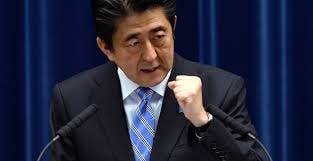Japan's Lower House Election: Results Aren't Everything
(Baonghean.vn) - As predicted by public opinion and analysts, the election slogan "Economic recovery, the only way" brought an overwhelming victory to the ruling Liberal Democratic Party (LDP) of Prime Minister Shinzo Abe. However, this risky "gamble" not only shows that Japanese voters support the path outlined by Prime Minister Shinzo Abe but also reflects the challenges in the upcoming journey of the leader of the Land of the Rising Sun.
 |
| How to realize the promise and strengthen voters' trust is the biggest challenge for Prime Minister Abe's administration. |
| RELATED NEWS |
|---|
True to the goal that Prime Minister Abe set before the election, which was whether the Japanese people wanted to continue or stop the Abenomics economic policy, the Japanese people had a very clear answer to Mr. Abe. That is, Japanese voters support the path that Prime Minister Shinzo Abe has outlined and want a stable government to develop the economy, restore national strength, and protect Japan's interests. If there were still many skeptical opinions before the election that the economic factor would be a "risk" in this "risky gamble" of Mr. Abe, this policy contributed to his overwhelming victory this time. According to many analysts, for many Japanese voters, the Abenomics policy package may not be a complete solution, but it is still the right path to pull Japan out of the deflation that has lasted for 2 decades and bring a new face to the country's economy. The achievements of Prime Minister Abe's cabinet in the past two years, such as creating 1 million more people to find jobs, the highest employment rate in 22 years and the highest wage increase in 15 years, are the clearest proof of what Mr. Abe has promised. Although Japan's economy still has many difficulties, the majority of Japanese voters believe that the opposition parties have not presented any convincing platforms.
That does not mean that Mr. Abe's ruling Liberal Democratic Party will "go straight" in the next stage. According to analysts, one of the "three arrows" in the Abenomics policy, "economic reform" - the most important part of Abenomics - will also be the biggest "obstacle" for Mr. Abe in the road ahead. It can be said that although the Japanese government has implemented many bold measures, the country's economy is not only not growing but is falling into a technical recession. People's lives are also affected by rising prices. Therefore, most people's opinions hope that the new government will have economic recovery measures that they can feel through the improvement of their own lives.
If the challenge is how to continue to maintain and promote Abenomics, the election results also pose certain obstacles for Prime Minister Abe's foreign policy. Although in the 2 years since returning to power, it seems that the trips to 50 countries around the world to promote Japan's "active peace diplomacy" policy have not brought about clear results, especially in relations with neighboring countries China and South Korea. Prime Minister Abe's continued hardline stance on sensitive issues with the two neighboring countries such as historical awareness, sovereignty over islands... and then calling on people to realize the importance of amending the pacifist Constitution has caused the Chinese and South Korean press to express concern.
Obviously, although it was considered a big win in the recent challenge, the result seems to be only a “sufficient condition” for Prime Minister Abe’s administration. The voter turnout rate was only 52%, 7 points lower than the election two years ago, and many opinions said that they had no other choice but to vote for the ruling Democratic Party once again, showing that although it has not yet “abandoned” the Abenomics policy, voters’ trust is no longer intact. How to realize the promise and strengthen voters’ trust is the biggest challenge for Prime Minister Abe’s administration.
Thanh Hien






